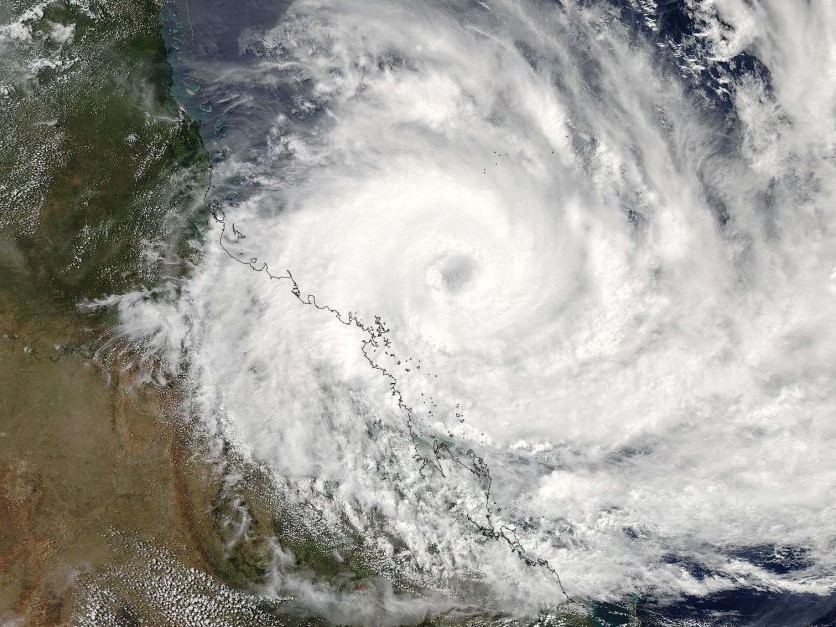Small chance more than four cyclones will form in Queensland waters

It is shaping as an “average” cyclone season on Australia's east coast with just a 54 per cent chance of more than four cyclones forming in Queensland’s waters.
The Bureau of Meteorology released its Tropical Cyclone Outlook for 2017-18 today for the cyclone season between November and April across Australia including the Eastern region, which includes TNQ.
The bureau says neutral to weak La Nina conditions and slightly warmer than average ocean temperatures to the north and east of Australia had informed the forecast, although predicting cyclone activity can be a tricky business.
"We predict the number of cyclones using a statistical model based on current conditions and conditions over the past few months," the bureau's weather services manager Richard Wardle said.
Along with data dating back to the early 1970s with the advent of weather satellites, the impacts of current and previous weather conditions on cyclone activity is the most reliable indicator for the upcoming season.
"We don't know the likely crossing locations or intensity of cyclones that may form at this stage," he said.
Only 25 per cent of cyclones that form in the Eastern region hit the coast.
Two cyclones hit Queensland last season, with Debbie crossing at Airlie Beach in March and Alfred crossing in February.
Previous cyclone forecasts for TNQ have been:
• 2016-17: up to eight cyclones and a 58 per cent chance of an "above average" number of cyclones.
• 2015-16: Up to four cyclones and a 64 per cent change of fewer tropical cyclones than average.
• 2014-15: Up to four cyclones and a 66 per cent chance of fewer tropical cyclones than average.
Local residents are still being urged to stay vigilant and prepare early in case more cyclones than forecast form and threaten the coast with Deputy Premier Jackie Trad saying it's important to be ready for summer.
“This week (October 8 - 15) is Get Ready week, a week that recognises that as Queenslanders, we can’t afford to be complacent about natural disasters,” Ms Trad said.
“This is the week to think about your household’s 'what if' emergency plan – what would you take with you, where would you go.
“I want to encourage everyone across the state to use this week to Get Ready – go online or get in touch with your local council for ideas on how to be prepared this storm season.”
For more information on Get Ready Week, click here.

